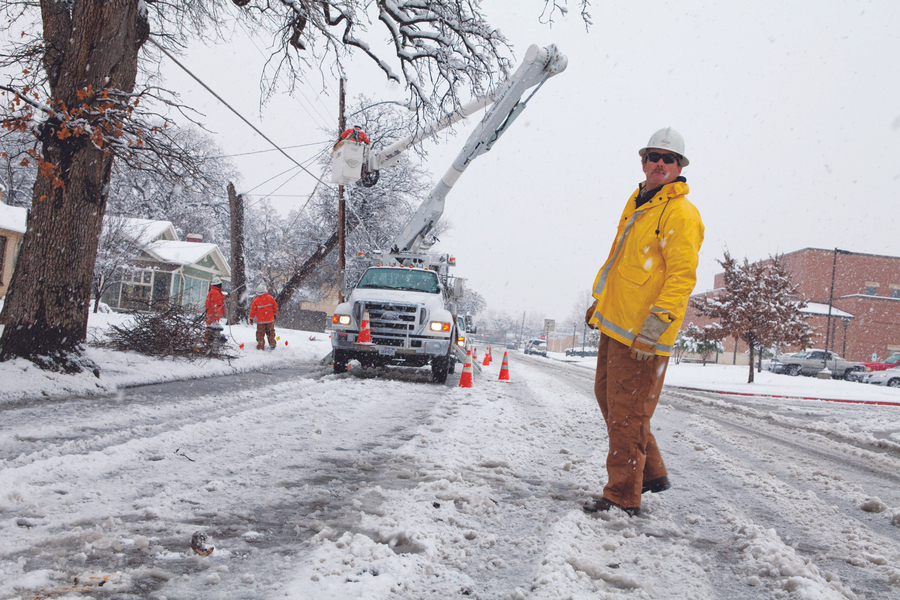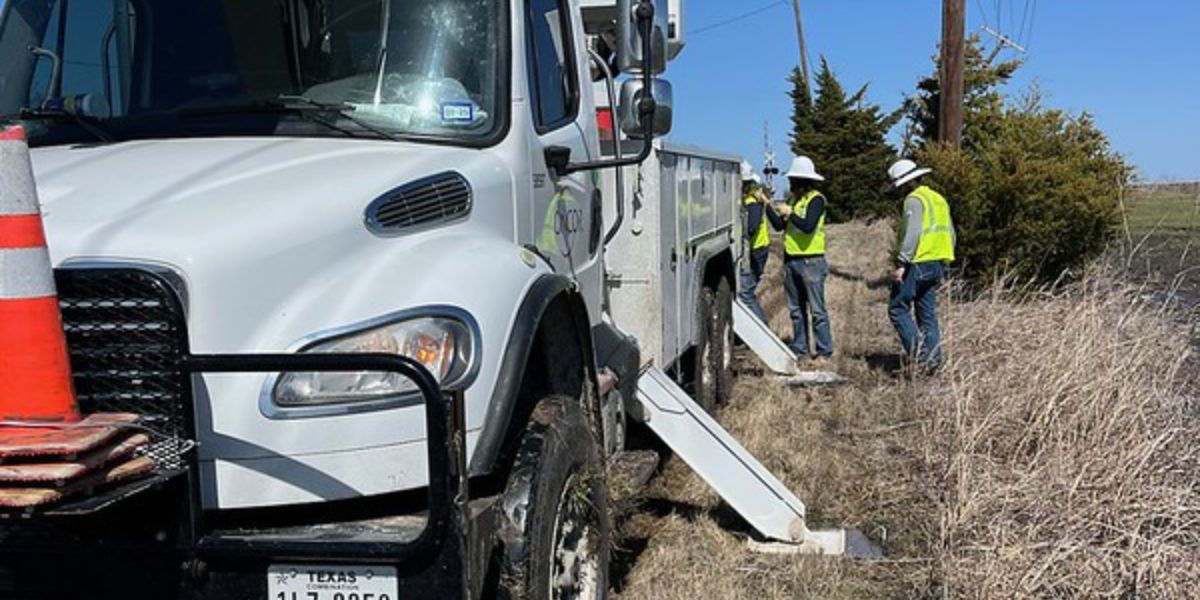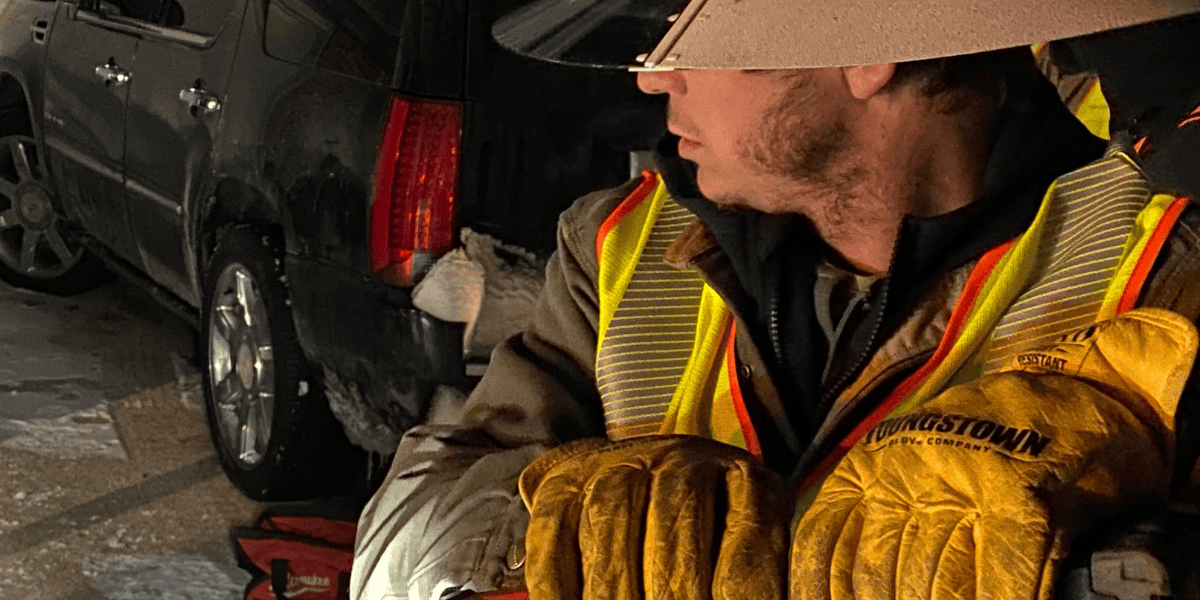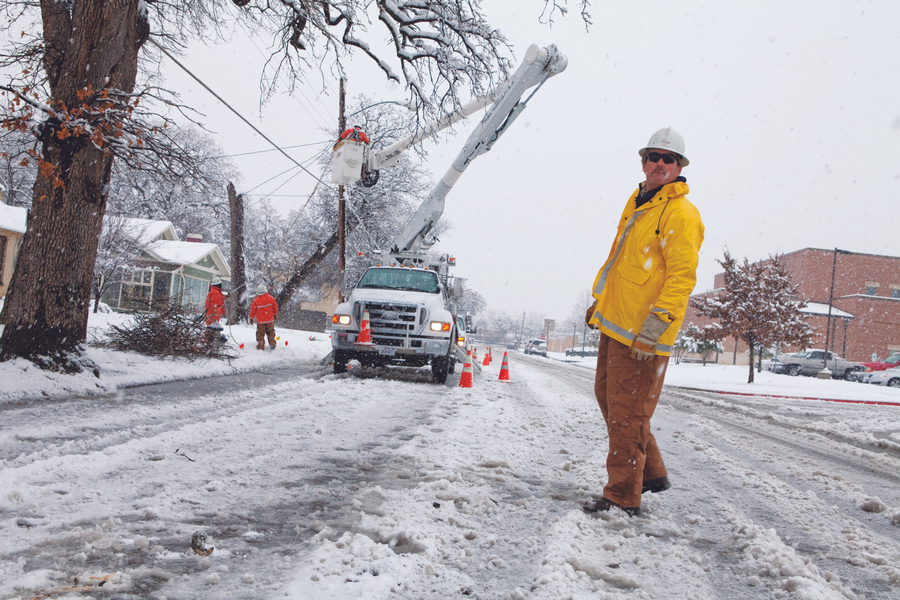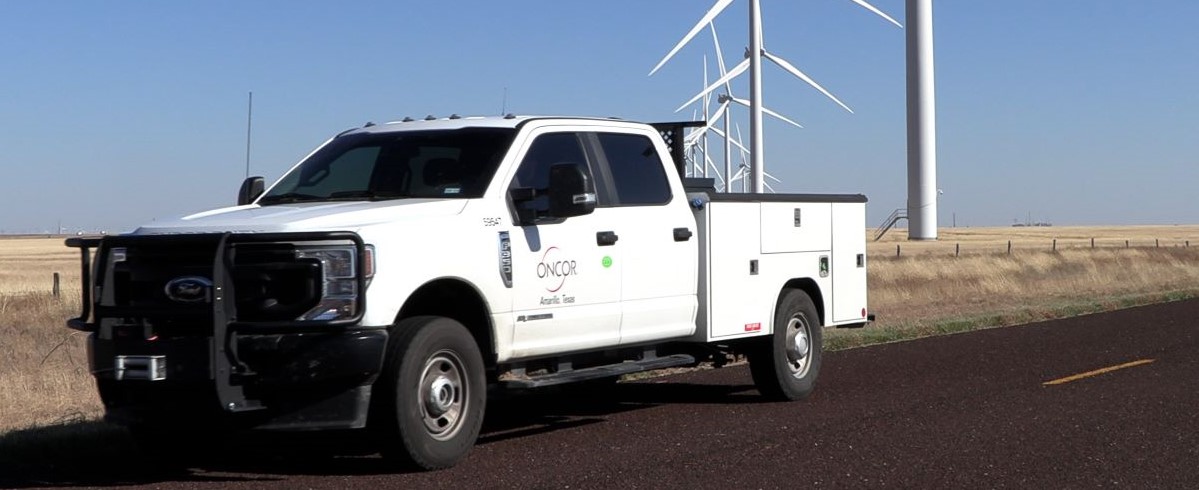-
Contact Us
-
General Inquiries/Service Requests:
- 888.313.6862
-
contactcenter@oncor.com
-
(Mon.-Fri., 8 a.m.-6 p.m. Central Time)
-
For Outages
- 888.313.4747
-
(24/7)
When the weather gets icy, driving gets dicey. Daniel Ortiz would know.
Early in his Oncor career, the Journeyman Lineworker was driving his truck through Wichita Falls when he encountered a patch of black ice. Fortunately, he was able to safely ease the truck into a patch of grass along the side of the road. This allowed his tires to regain their traction and, thankfully, enabled him to come to a halt.
This scary moment has stuck with him. He won’t soon overlook the dangers of driving in wintry conditions.
“Most vehicles are not meant to be driven on ice,” said Ortiz, who now works in Fort Worth.
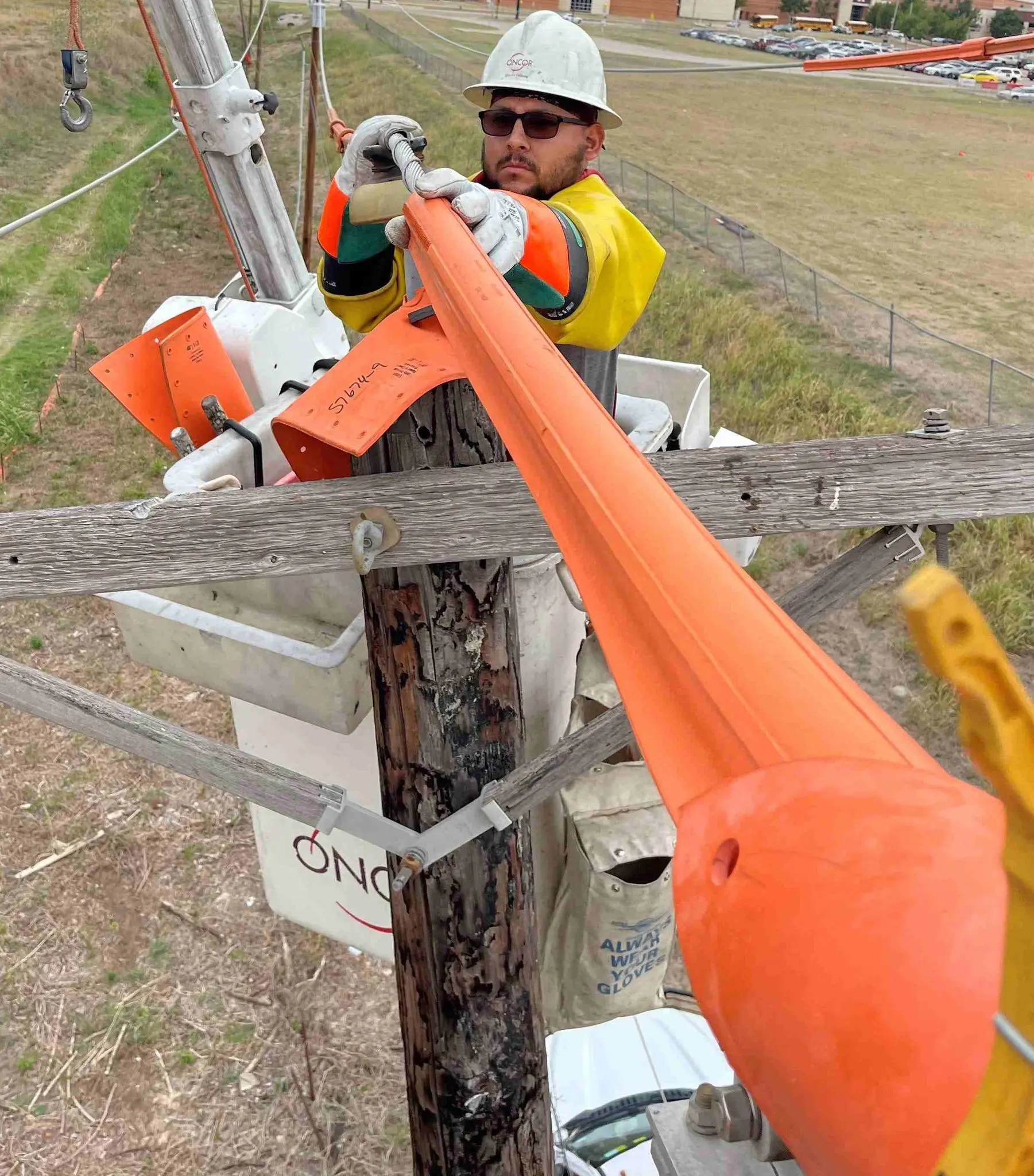
Oncor operates more than 2,700 vehicles in the delivery of our services, and our employees drive more than 44 million miles annually. Oncor safety practices include several proactive measures to reinforce safe-driving habits across the company.
If you can stay home during wintry conditions, stay home. But at Oncor, when winter weather causes a power outage, lineworkers often have to drive heavy vehicles in fraught conditions. The safety of these frontline employees is Oncor’s top priority.
Andrew White, a Crew Supervisor who works in Fort Worth, knows it’s important to respond to outages quickly while also being a safe driver. “Yes, we want to get the power back on. We do have an obligation to our customers. We also have an obligation to ourselves and the general public to stay safe,” White said.

Increase your following distance
It’s always important to keep distance between you and the vehicle in front of you. In ice or snow conditions, this becomes even more important because it takes longer to brake and come to a complete stop. – Jonathan Bryden, Sr. Distribution Operations Technician, Fort Worth
Brake earlier
No vehicle can stop on a dime, but especially with our vehicles, they have so much weight behind them that we really need to start slowing down earlier than we would in a normal vehicle. This need is amplified in ice and snow conditions. We work with heavy equipment, and it needs to be respected. – Ortiz
Check the little things before you get going
Make sure your tires are inflated to the proper PSI. Check your fluid levels. Make sure your windshield wipers work. Get snow chains that are properly fitted for your vehicle. It’s important to step back and think about those small things because they can add up over time. – White
Be prepared for an emergency
You never really know when your vehicle could shut off. Keep some extra clothes in your car to stay warm if you get stuck. Pack a battery-powered charger for your phone. Keep water available. During the winter, I’ll even carry around a little backpack with some extra stuff. You may not need it, but if you do, you have it. And that may save your life one day. – Ortiz
More winter driving tips
- If you don’t have to stop, don’t. If you are able to maintain a slow roll instead of coming to a complete stop, this will reduce your chances of skidding and make accelerating following the slowdown easier. (via AAA)
- Keep your gas tank as close to full as much as possible. (via the National Highway Transportation Safety Administration)
- If you’re going uphill, don’t stop. If you don’t have enough speed before going up a slippery hill, your vehicle could come to a stop and then roll backward down the hill. Safely build up enough speed before driving up a hill to get over it. (via the National Safety Council)
- If you’re stuck, don’t leave your vehicle. Your vehicle will keep you warm, temporarily shelter you, and allow you to be more recognizable. (via AAA)
- Avoid using cruise control. (via the National Safety Council)
Driving safely is, of course, always important. Driving during a winter weather event, though, calls for extra precautions. In 2022, the U.S. experienced an estimated 153,620 police-reported traffic crashes that occurred during sleet and snow conditions, according to the National Highway Traffic Safety Administration.
Stay updated
Oncor is committed to providing our customers with regular weather updates, especially during severe weather events, as supported by our in-house meteorologist. Customers can connect with us and receive updates through our various communication platforms, including:
- The MyOncor App (available in the App Store and Google Play)
- My Oncor Alerts (to register, text REG to 66267)
- Storm Center Outage Map
- Social media channels (Facebook, X (Twitter), Instagram)
- Calling 888.313.4747
